Table of Contents
Adverbs of manner describe how an action is done. They give more information about the way an action is performed, making sentences clearer and more descriptive.
For example, in the sentence She runs quickly, the word quickly shows how she runs. Adverbs of manner typically answer the question how something happens.
What is an Adverb of Manner?
An adverb of manner describes how someone does something or how something happens, making the meaning clearer.
Example Sentences
She walked slowly to enjoy the view.
The baby cried loudly throughout the night.
He handled the fragile vase carefully.
What is Adverb?
An adverb is a word that describes or gives more information about a verb, adjective, or another adverb. It tells us how, when, where, or to what extent something happens.
Example Words
- Slowly
- Loudly
- Carefully
- Happily
- Bravely
Example Sentences
- They celebrated the occasion happily.
- The soldier fought bravely during the battle.
- She quickly finished her homework.
- He speaks softly during the meeting.
- They arrived early at the party.
Identification of Adverbs of Manner
Adverbs of manner describe how an action is performed. They usually end in ly, such as quickly, slowly, and happily. However, some do not follow this pattern, such as fast and well.
How to Use Adverbs of Manner
Adverbs of manner are generally placed after the verb or the object in a sentence. They modify the verb by explaining how the action takes place.
Examples
He speaks softly.
- In this sentence, the adverb of manner softly describes how he speaks, highlighting that his way of speaking is gentle or quiet.
She finished the task carefully.
- Here, the adverb carefully modifies the verb finished, showing that she completed the task with attention and caution.
They walked quickly.
- In this example, the adverb quickly modifies the verb walked, indicating that their walking was fast-paced or hurried.
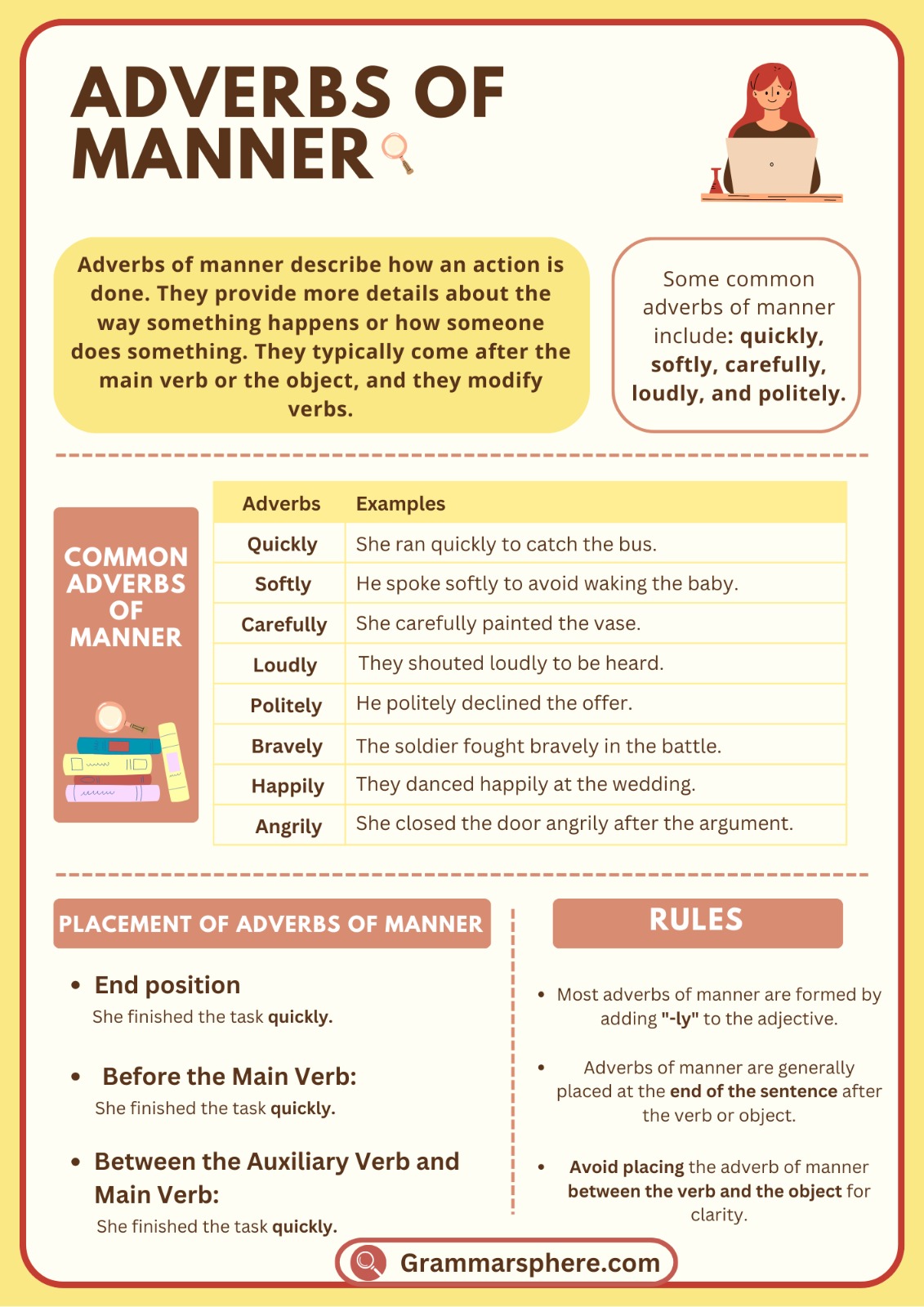
Adverbs of Manner Used in Sentences
- The cat moved quietly through the garden.
- She sings beautifully at every concert.
- He responded politely to the question.
- They worked efficiently to finish the project.
- He drives very carefully.
- The child laughed happily after winning the game.
- She answered the question confidently.
- They worked diligently on the project.
- He spoke politely to the guests.
- The dog barked loudly at the strangers.
In each of these examples, the adverbs of manner tell us how the action is performed.
Rules of Adverbs of Manner
Rule: 1
Most adverbs of manner are formed by adding ly to adjectives.
| Adjective | Adverb |
|---|---|
| Happy | Happily |
| Careless | Carelessly |
| Angry | Angrily |
| Brave | Bravely |
| Quiet | Quietly |
| Honest | Honestly |
| Quick | Quickly |
| Polite | Politely |
| Safe | Safely |
| Easy | Easily |
Example Sentences:
- She danced gracefully.
- He spoke softly.
- They ran quickly.
- The dog barked loudly.
- She wrote neatly.
Rule: 2
If the adjective ends in ‘y’, replace the ‘y’ with an ‘i’ and add ‘-ly’
| Adjective | Adverb |
|---|---|
| Silly | Sillily |
| Lucky | Luckily |
| Dusty | Dustily |
| Thirsty | Thirstily |
| Lonely | Lonelily |
| Wealthy | Wealthily |
| Giddy | Giddily |
| Shiny | Shinily |
| Stormy | Stormily |
| Scary | Scarily |
Example Sentences:
- The child giggled sillily.
- She finished her homework quickly.
- He drank the water thirstily.
- They spun around giddily.
- The car gleamed shinily.
Rule: 3
If the adjective ends with ‘-le’, replace the ‘e’ at the end with ‘y’.
| Adjective | Adverb |
| Able | Ably |
| Simple | Simply |
| Fickle | Fickly |
| Gentle | Gently |
| Stable | Stably |
Example Sentences
- He explained the rules simply.
- The baby slept gently.
- The team performed stably.
- She smiled finely
- She solved the problem ably.
Common Mistakes with Adverbs of Manner
1. Using the Wrong Form
Beginners often confuse adjectives and adverbs, using the wrong form in sentences. Remember, adverbs of manner usually end in -ly and describe the verb.
Incorrect: He drives slow.
Correct: He drives slowly.
2. Misplacing the Adverb
Adverbs of manner should be placed close to the verb they are modifying. Misplacing the adverb can change the sentence’s meaning or make it unclear.
Incorrect: She carefully writes her notes in class.
Correct: She writes her notes carefully in class.
3. Overusing Adverbs of Manner
Using too many adverbs in a sentence can make it sound unnatural. Instead, choose stronger verbs that convey the meaning without needing extra adverbs.
Incorrect: She quickly and quietly walked softly to the door.
Correct: She tiptoed to the door.
4. Adding Redundant Adverbs
Sometimes, adverbs of manner are unnecessary because the verb already implies the action. This can make sentences wordy or repetitive.
Incorrect: He shouted loudly.
Correct: He shouted.
5. Using Adverbs with Non-Action Verbs
Adverbs of manner generally modify action verbs, not state-of-being verbs like is, seems, or feels. Adding adverbs to non-action verbs can sound unnatural.
Incorrect: She is happily.
Correct: She is happy.
List of Common Adverbs of Manner
- Carefully
- Quickly
- Slowly
- Politely
- Loudly
- Gently
- Easily
- Happily
- Quietly
- Hard
- Well
- Fast
- Rudely
- Bravely
- Neatly
- Patiently
- Angrily
- Calmly
- Eagerly
- Cheerfully
Creating Adverbs of Manner
Adverbs of manner are typically formed by adding ly to adjectives, but there are different ways and exceptions when forming them.
Let’s look at various situations where we create adverbs of manner and how they work in different contexts.
Adding “ly” to Adjectives
In most cases, you can create an adverb of manner by adding ly to the base adjective.
Example Words:
- Quick becomes quickly
- Happy becomes happily
- Careful becomes carefully
Example Sentences:
- She finished her homework quickly.
- He smiled happily when he saw his gift.
- They completed the task carefully.
Adjectives Ending in “y”
For adjectives that end in y, change the y to i and then add ly to form the adverb.
Example words:
- Easy becomes easily
- Happy becomes happily
- Lazy becomes lazily
Example Sentences:
- She solved the puzzle easily.
- The children played happily in the park.
- He worked lazily the whole afternoon.
Adjectives Ending in “le”
For adjectives ending in le, drop the e and add y to form the adverb of manner.
Example words:
- Gentle becomes gently
- Simple becomes simply
- Terrible becomes terribly
Example Sentences:
- She spoke gently to calm him down.
- The process was explained simply for the students.
- He did terribly on the test.
Irregular Adverbs
Some adverbs do not follow the typical ly rule. These are irregular and must be memorized.
Example words:
- Good becomes well
- Fast remains fast
- Hard remains hard
Example Sentences:
- She sings well.
- He ran fast to catch the bus.
- They worked hard to complete the project.
- Adjectives that Stay the Same
Some adjectives can act as adverbs without any changes in their form.
Example words:
- Fast
- Late
- Hard
Example Sentences:
- He drove fast to reach the meeting on time.
- She arrived late to the party.
- He worked hard to meet the deadline
To create an adverb of manner, add ly to most adjectives:
- happy becomes happily
- slow becomes slowly
- polite becomes politely
Some adverbs, like fast and well, don’t change and remain the same.
FAQS
What is the adverb of manner and examples?
An adverb of manner describes how an action happens. Examples: quickly, slowly, happily, neatly.
What is the formula for an adverb?
Most adverbs are formed by adding “-ly” to an adjective. Example: quick → quickly, happy → happily.
Adverb of manner Examples
Examples of adverbs of manner: quickly, slowly, loudly, neatly, happily, bravely.
You May Also Like

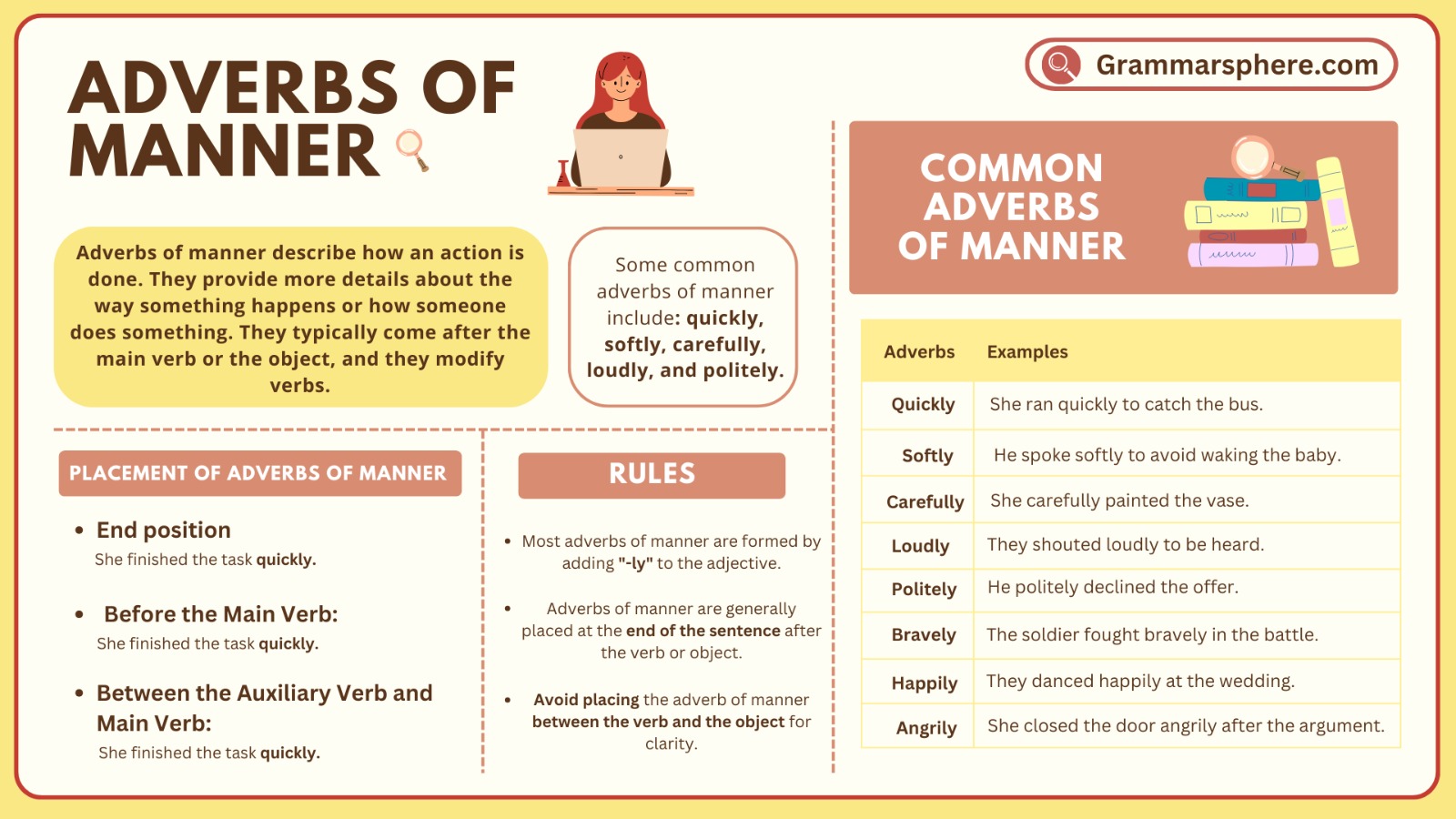
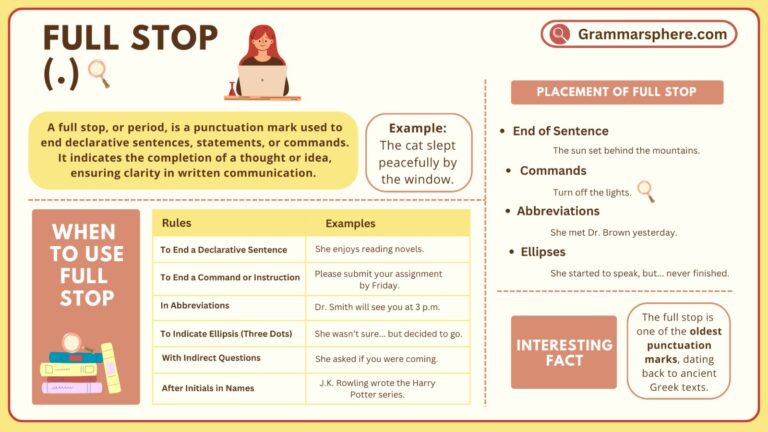
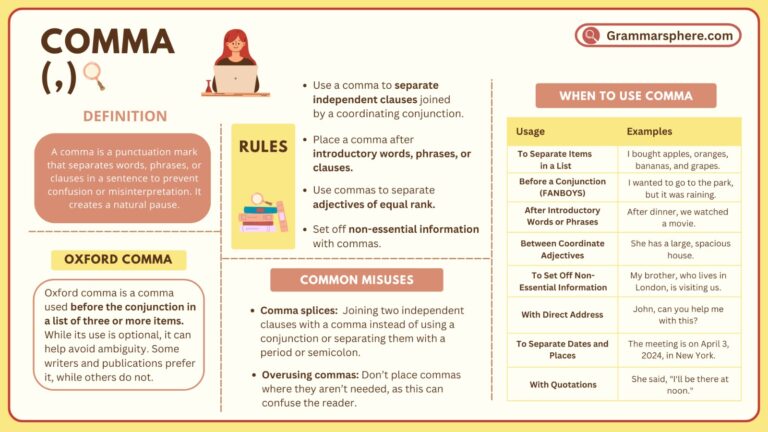
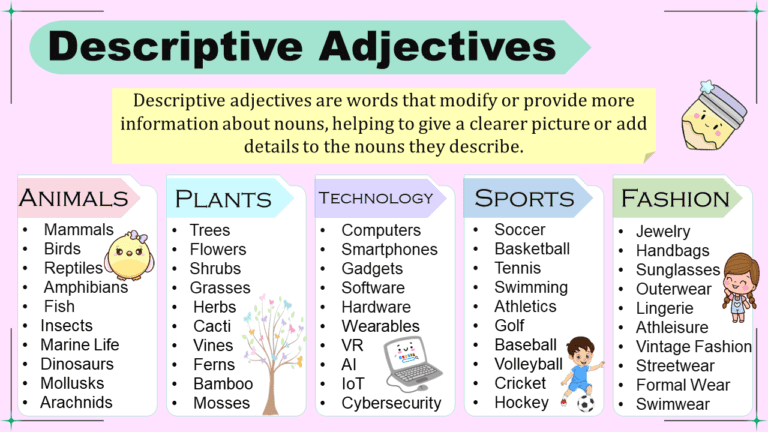
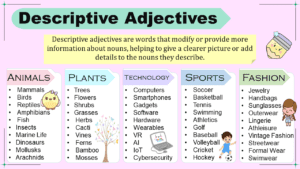
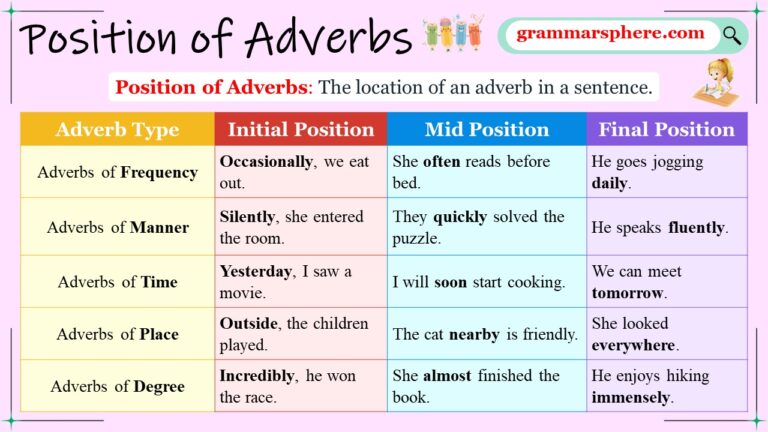
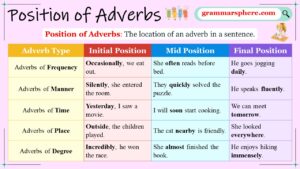
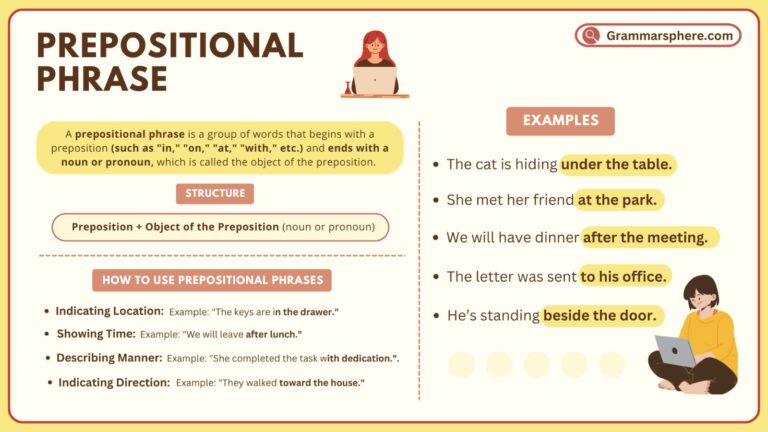
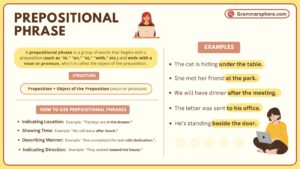
Leave a Comment